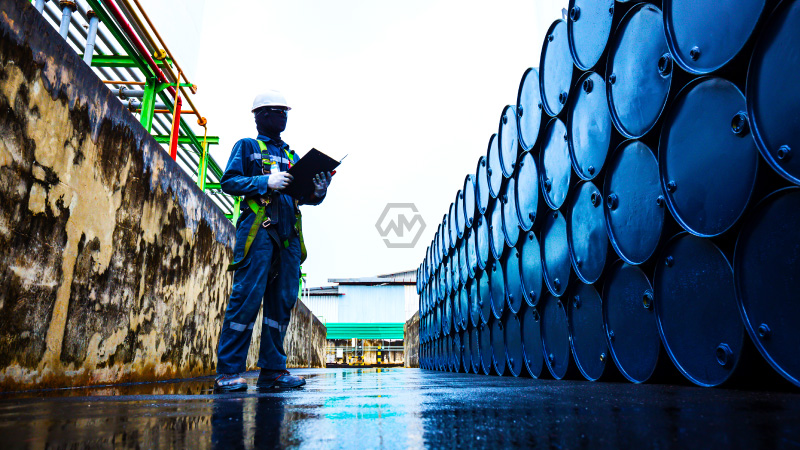- For a long time, the oil-rich country has not had the option to refine the item.
- Bringing in refined oil costs the country colossal measures of unfamiliar cash.
- The cost of fuel has likewise turned into a significant policy-driven issue.
The conveyance of 1,000,000 barrels of unrefined petroleum to an immense new treatment facility in Nigeria denotes a significant achievement in the process of the nation having the option to deliver fuel itself.
It isn’t clear when the mammoth Dangote treatment facility will begin working however when running, it will be a major move toward arriving at energy independence.
Million Barrels of Crude Oil in Nigeria
The conveyance of the first million barrels of unrefined will be trailed by 5,000,000 more, which ought to then permit the plant to start creating fuel.
When completely functional, the $19bn (£15bn) office in Nigeria’s business center point, Lagos, is anticipated to deliver around 650,000 barrels each day.
It will start by making diesel, flying fuel, and condensed oil gas (LPG) before advancing to the creation of petroleum.
Africa’s most extravagant man and leader of the Dangote Gathering, Aliko Dangote, said on Friday that the “center throughout the next few months is to increase the treatment facility to its full limit. I anticipate the following critical achievement when we convey the primary group of items to the Nigerian market.”
The organization flaunts it will be ultimately ready to accommodate 100 percent of Nigeria’s necessities of all refined items and have a surplus for trade.
The mainland’s biggest economy, and one of its biggest oil makers, has confronted difficulties in the stockpile of fuel, including unfamiliar cash deficiencies, which have added to the continuous episodes of shortage in the country.
For quite a long time, the cost had been sponsored – one of a handful of the advantages that numerous Nigerians had felt that they got from the state.
However, the endowment cost the public authority a huge amount of cash, and this year the recently chosen President, Bola Tinubu, eliminated it. This prompted an expansion in fuel costs of more than 400%.
Even though trade guilds have constrained the public authority to switch its choice and ease the situation of most Nigerians, President Tinubu has kept up with that it was a move that had long-haul benefits.
In November, the public authority said it had saved more than $1.8bn between June and September this year through the evacuation of the appropriation which will be directed into social improvement projects.



